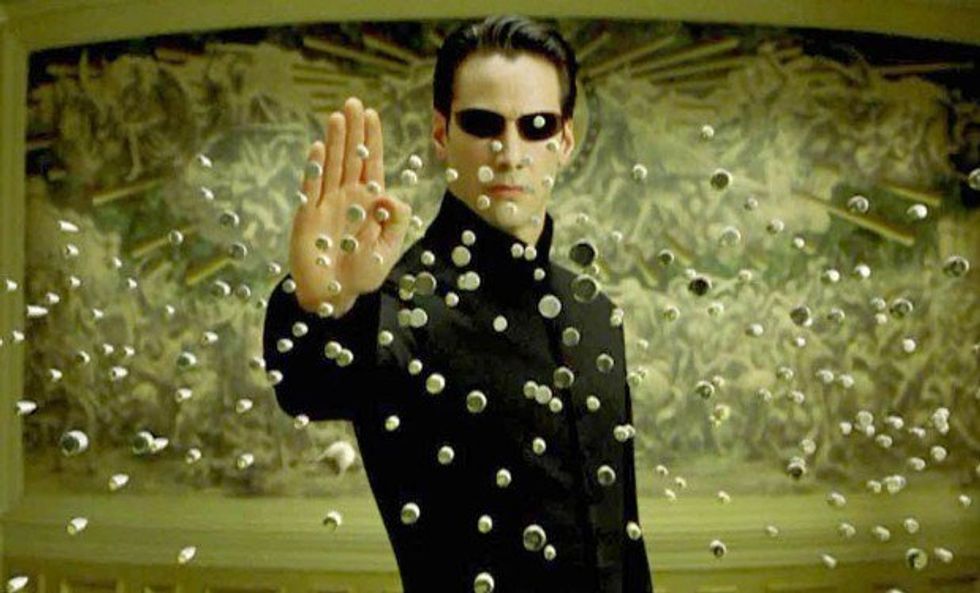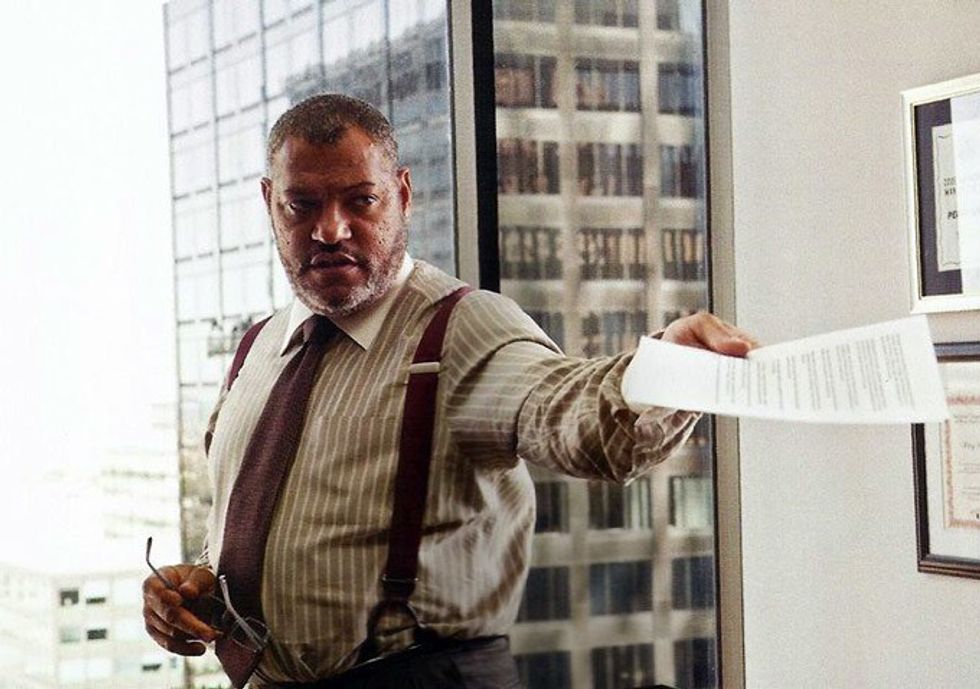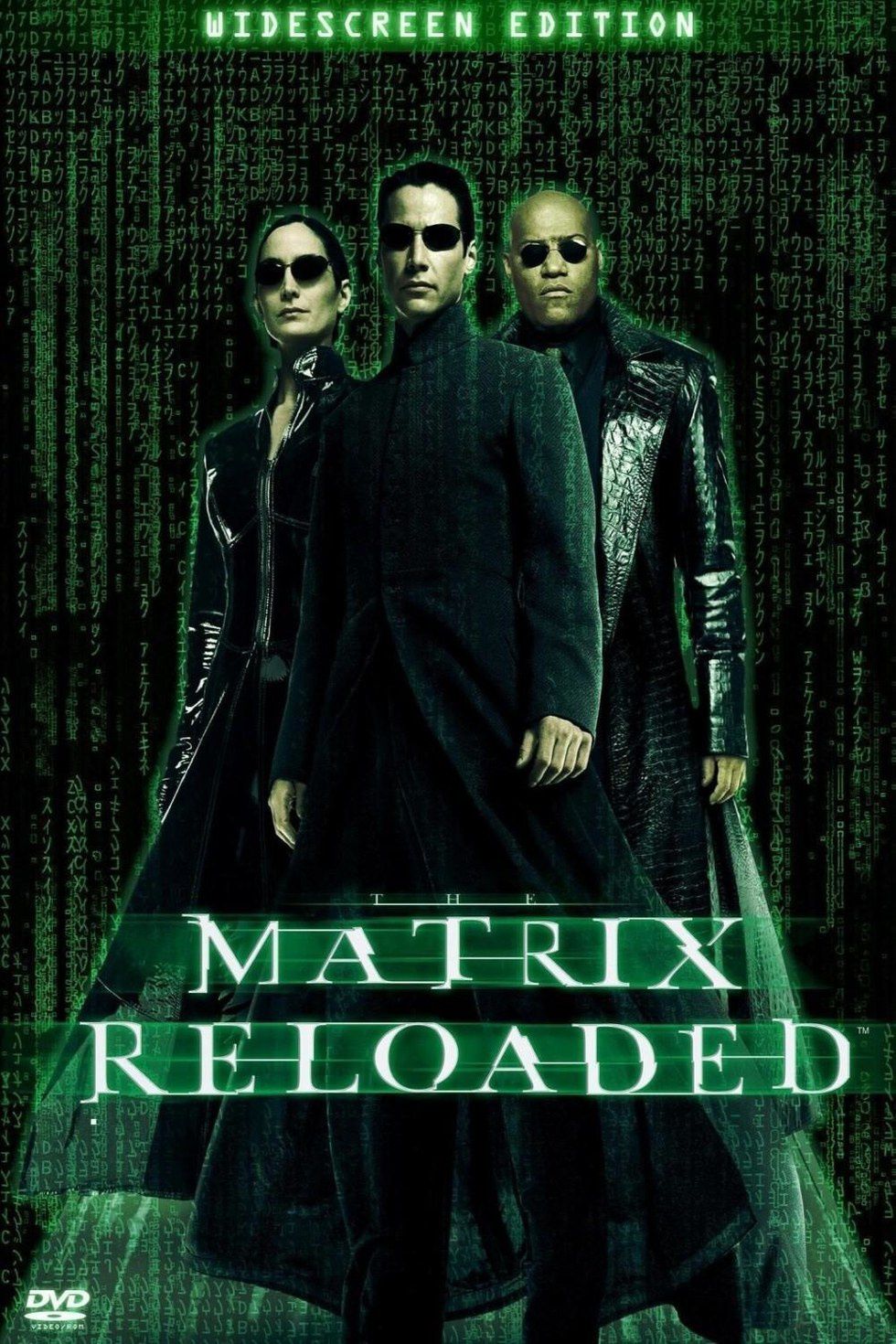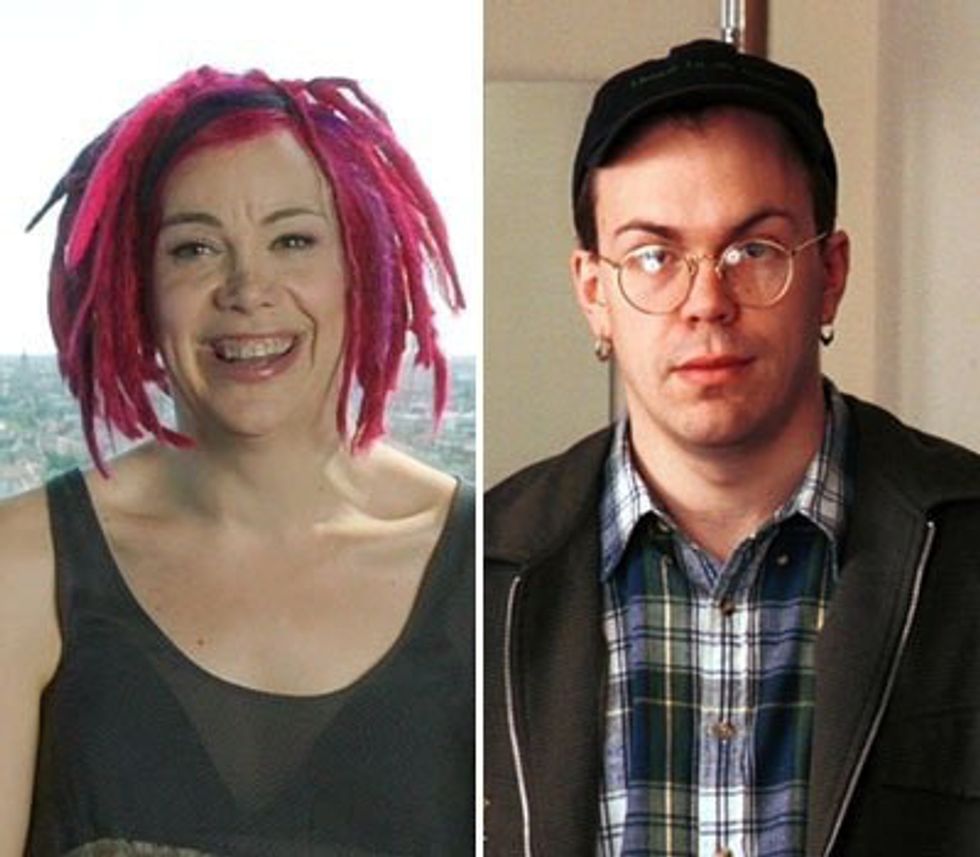When "The Matrix" was first announced, a number of consumers expected nothing more than another science fiction, action thriller while a similar number anticipated the same generic stunts. Few expected it to be terribly intelligent as the general preponderance of directors have all of the style but none of the substance expected of a Hollywood director. Just as we, as an audience, have come to expect a certain transcendence from films by the likes of Christopher Nolan and James Cameron, we also have grown skeptical of anyone who isn't Christopher Nolan or James Cameron.
With Cameron, it's really, "Ask and you shall receive but you really needn't ask."
Fortunately for the Wachowskis, and all parties who stood to profit from the more than 1.6 billion dollars brought in by the film, "The Matrix" has endured great success since its release in 1999. This is largely thanks to a plot replete with thought-provoking questions presented concurrently with satisfying visuals. "The Matrix" posits a seemingly innocent narrative but, intersplicing the tantalizing fight scenes, subtle ideas are dropped. Ideas such as the concept that choice is an illusion perpetuated by those with power, for the detriment of those without power. "The Matrix" story continues in its two sequels: The "Matrix Reloaded" and "The Matrix Revolutions." For the most part, reaction to "The Matrix" was overwhelmingly positive. Viewers were happy to see it repeatedly while commenting on aspects of the film such as the Bullet Time camera and the realistic implications of living in a pod while not getting exercise.
Just ask Laurence Fishburne (Morpheus) after he got a desk job in 'Man of Steel'.
However, since its release, the film and its producers have found themselves captive to a series of peculiar circumstances. The producers, the Wachowski brothers, could surely see the masterpiece they were creating, and were well aware that they were about to change cinematic history, but one could hardly expect them to prepare for the accusations that were to come from one individual in the African-American writing community.
While the majority of viewers were happy to be entertained for the two hours and 16 minutes they spent watching the film, one audience member, Sophia Stewart, watched in horror and disbelief at what looked strikingly like her own work, "The Third Eye." Much to the chagrin of anyone who was hoping for her accusations to be quickly swept under the rug, Stewart actually did have grounds to assume that Twentieth Century Fox had seen and copied her work. You see, Stewart had sent her book in treatment form to Twentieth Century Fox for consideration, and then to Warner Bros. a few years later; however, it was rejected both times. The fact that Twentieth Century Fox and Warner Bros. both had access to her work before releasing "The Matrix," gave her cause enough to accuse the producers of plagiarism based on slight similarity and a common theme.
Sophia "Mother of 'The Matrix'" Stewart
Fortunately for Stewart, she took action in 1981 to ensure that her work would remain hers, and copyrighted "The Third Eye," a story she was inspired to write after watching "Star Wars." This allowed her to argue that the producers of "The Matrix" had not only transgressed morally against her, but had also committed a legal felony by using copyrighted material. She describes her book topically as the Second Coming of Christ, the evolution of consciousness, and perhaps most pertinent to the case for plagiarism, man versus machine. Taking these themes into account, it is difficult to ignore the similarities between the two works, but most would attribute them to nothing more than coincidence inside a specific genre that allows for only so much deviation.
Stewart did not intend to let this perceived crime go unpunished and, after viewing the similarities in "The Matrix," Stewart immediately filed suit against the producers. The fight was promulgated in 2003 when she formally engaged in litigation against the Wachowski brothers, Twentieth Century Fox, Joel Silver, and Warner Bros., positing that this was blatant ideological theft.
The results of the court case have been the stuff of viral legend and have been falsely reported on multiple occasions such as here and here. In reality, the case carried on for several years only to be dismissed by the court in 2005 when Stewart not only failed to show up to court but also "had not entered any evidence to bolster her key claims or demonstrated any striking similarity between her work and the accused directors' films," according to court documents. The claims that Stewart was awarded the largest sum in the history of Hollywood are indisputably false as the only funds awarded were a little more than $300,000 in attorney fees to the defendants but these were never collected.
Amusingly, this wasn't the last time the Wachowskis would be accused of stealing. In 2013 Thomas Althouse filed suit claiming that "The Matrix Reloaded" and "The Matrix Revolution" were both taken from his own work, "The Immortals."
Why he would willingly claim responsibility for this catastrophe is perplexing.
The story of Sophia Stewart is hardly a tale of David versus Goliath, for David had the distinct advantage of owning the rocks he threw. Stewart took on one of the big six media conglomerates and the outcome was as predictable as ever with Stewart simplifying the matter by being absent from court on the day of reckoning; but while Stewart was throwing pebbles, something far more interesting was going on between the Wachowski "brothers." Two years before the release of their new film, "Cloud Atlas," Larry Wachowski revealed her transition to Lana Wachowski, affirming rumors that had been going around since the 2000s.
Someone will inevitably use this as proof that Tupac is still alive.
Interestingly, while writing this piece, Andy Wachowski revealed his transition to a weekly LGBT Chicago newspaper. As of March 8 2016, Andy Wachowski adopted the name Lilly.
Now, as you re-watch "The Matrix," you can utilize your newfound knowledge to view the entirety of the trilogy as an analogy for the Wachowski's identity struggle; this is assuming you want to cease taking any enjoyment whatsoever from watching the films. Fortunately, the transition is not without its positive developments, for the Wachowskis have since released their new film, "Cloud Atlas," with the lion's share of reviews being positive.
The success of "Cloud Atlas" is rather telling when it comes to the future of film in that Larry and Andy's respective members were probably not the sources of genius behind "The Matrix" and that the Wachowski siblings will continue making high level films. As far as the case against them is concerned, Lana and her new found BFF can sleep soundly at night, knowing that "The Matrix" was not stolen from black people, unlike those dreadlocks.
Oh, yeah, she also says she wrote "Terminator."


























